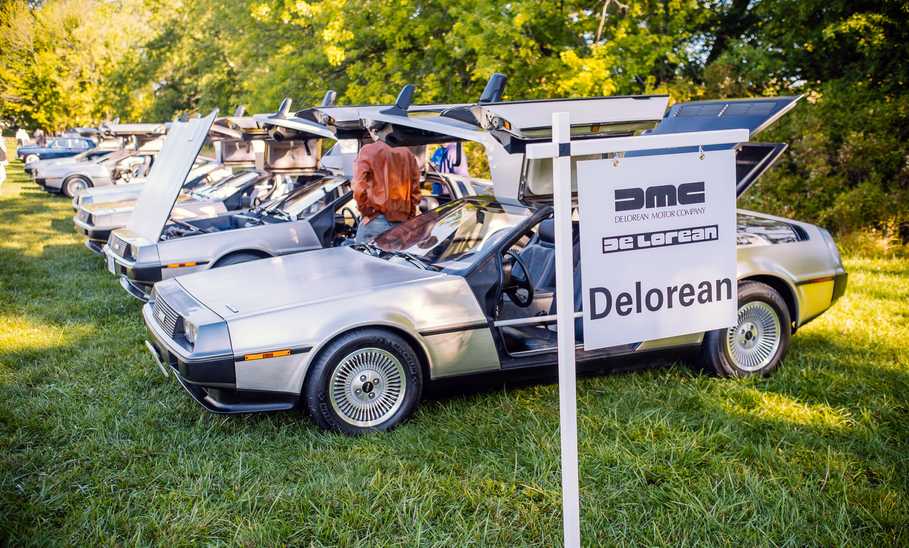Cheap
What Is a Salvage Title on a Car?

Our evaluations and opinions are not influenced by our advertising relationships, but we may earn a commission from our partners’ links. This content is created by TIME Stamped, under TIME’s direction and produced in accordance with TIME’s editorial guidelines and overseen by TIME’s editorial staff. Learn more about it.
If a vehicle is damaged to the point that an insurance company deems it either a total loss or subject to repair costs of 75% or greater than its pre-damage retail value, state law dictates that it must receive a legal certificate known as a “salvage title.” This notes that the car has become unfit for the road, whether due to a collision, theft, vandalism, or water damage. It is not legal to drive a car with a salvage title.
Such cars can be an attractive purchase in certain situations: for cosmetic use, as a fixer-upper to resell or use as a secondary car, to break up and sell the parts, or simply because the car is cheap. However, there are some things to keep in mind.
Cheap
The obvious answer to this question is when the price is right. While they need work, salvage-title cars can be picked up quite inexpensively. If the vehicle is fixable, then it can be cheap compared with other cars.
Even though vehicles with salvage titles are more affordable, they have their drawbacks. Most notably, they can be dangerous if the repairs are done hastily. Issues can also take time to surface. Cars with a salvage title are usually sold “as is” by private sellers, which means that the possibility of fraud exists: You can be misled about the condition of the car.
Such vehicles are generally considered risky investments. After all, they have been deemed of little financial value by an insurance company. Banks and other insurance companies will treat them differently than a car that hasn’t been damaged. Financing the purchase of such a vehicle will be trickier and likely incur worse terms than for a new or an undamaged used car. Insurance companies may also hesitate to include collision coverage or other forms of more inclusive coverage, restricting you to basic liability coverage.
Keep in mind, though, that a salvage title is different from a rebuilt title. Once a car has been fixed and passed an inspection, it will receive a rebuilt title (though it will always have a salvage history). Only then will it be legal to drive. Still, even once rebuilt, the resale or trade-in value won’t be as high as for a regularly titled car.
There are some questions to ask yourself when considering the purchase of a car with a salvage title. For example, do you trust the seller and know exactly what caused the damage? Do you know what work has been done on the car?
If you’re planning to pay cash, a car with a salvage history might save you money. Still, it’s important to inspect it thoroughly, so you can fix any issues that arise.
Then there are your reasons for buying the car. Unless you are planning to run it into the ground or sell it for parts, concerns about resale value will matter.
With a salvage-title car, it’s even more important than usual to subject it to a thorough inspection. You should access the vehicle’s history to learn about how it got a salvage title. The more severe the damage, the more problems it is likely to have.
The seller should be willing to give you repair records, so you can see what work has been done on the vehicle. Then, you should have a good mechanic whom you trust inspect the vehicle to spot any potential issues.
The easiest way to finance a car with a salvage title is with an unsecured personal loan. However, the interest rate might be higher for such a loan than for one for a new car. It may also prove more expensive to buy insurance. Shop around and get quotes before buying.
While it’s possible to pick up a car with a salvage title for relatively little, especially if you are paying cash, you have to weigh this against other factors. There are the potential risks of fraud, poor repair, and hidden defects that might take time to surface. There is also the cost of repair: You won’t be able to drive it until it can qualify for a rebuilt title. Price alone should not be your determinative metric.
No. North Carolina will not allow you to operate a car with a salvage title until it has received a rebuilt title from the state. This requires passing an inspection.
Again, the answer is no. In order to prove it’s roadworthy, the car has to be fixed up and given a rebuilt title before it can be driven.
The most common way to sell a salvage-title car is to list it as a private buyer. Be sure to fully disclose the condition of the car. There are also “as is” dealerships that sometimes buy salvage cars with the intent of fixing them up. Additionally, you can choose to sell the individual parts rather than the car as a whole. After all, there are undoubtedly other people out there looking to repair a salvage-title car—or any car.
The information presented here is created by TIME Stamped and overseen by TIME editorial staff. To learn more, see our About Us page.



